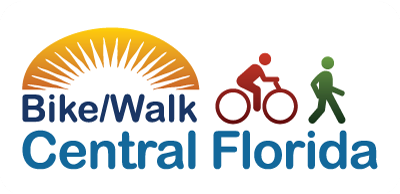 State Road 50 — or Colonial Drive — is not always the most pleasant commute. Congestion. Stop-and-go traffic. Not very bike-friendly or walkable.
State Road 50 — or Colonial Drive — is not always the most pleasant commute. Congestion. Stop-and-go traffic. Not very bike-friendly or walkable.
Bus Rapid Transit (BRT) has been proposed as one possible solution for these commuting challenges. And a recent study conducted by MetroPlan Orlando reports a SR 50 BRT route could mean safer commutes and healthier commuters throughout the corridor.
The route would cover a 22-mile segment from Powers Road to the west to State Road 434 to the east.
Yes – ditching your car for the bus might improve your health. People who ride public transit tend to walk more and bike more. Active commuting i.e. walking and biking can help combat chronic illnesses like obesity, diabetes and cardiovascular disease.
But the report – part of a Health Impact Assessment (HIA) of the proposed SR 50 BRT route – says there is a caveat.
The SR 50 BRT’s impact on community health is contingent on investing in infrastructure that encourages biking and walking. Engineering that makes it convenient and the norm. Adopting a “Complete Streets” policies. Supporting transit-oriented development (TOD). All are important contributing factors according to the HIA report.
This means redesigning SR 50 to make it more user-friendly for people on foot and riding bikes, not just motorized vehicles.
Combining approaches, the study says, and people living and working on and near the road will be healthier — as well as safer. Between 2009 and 2014, the area recorded 509 bicycle and pedestrian crashes with 40 fatalities.
Just as bad, people living in the area, the report says, are not in good shape.
“Compared to Region-wide and Statewide averages, the Corridor has equally high or slightly higher rates of obesity, asthma, cardiovascular disease, and diabetes.” said the 106-page study entitled SR 50 Bus Rapid Transit Health Impact Assessment.
Adding sidewalks, crosswalks, pedestrian paths and bike paths — plus the bus rapid transit route — will encourage people to walk and ride, reducing congestion. Those improvements also would improve commerce because it would be easier for people to get to work, along with shopping and dining.
“The proposed SR 50 BRT system,” the report concludes, “will improve the transit experience of existing riders (i.e. enhanced access to jobs, education, and other community resources) while also incentivizing potential riders to change their primary mode of transportation from personal vehicle to walking, biking and/or riding transit by providing a more premium-type service.”
Two BWCF board members were actively involved in the SR 50 HIA study – Lisa Portelli representing the Winter Park Health Foundation and David Overfield representing the Florida Department of Health.
View the report here on MetroPlan Orlando’s website.

